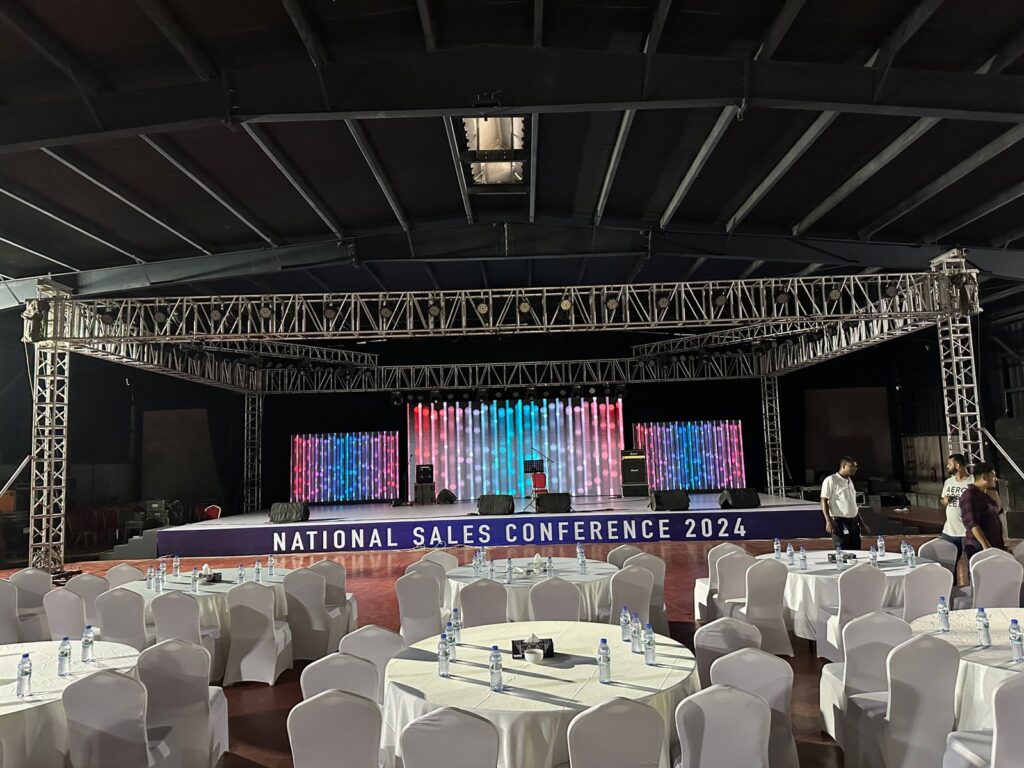Master the art of corporate events with our ultimate guide! Tips, strategies, and expert insights to host successful, impactful gatherings.

Importance from a Business Perspective
- Motivating employees
- Strengthening business relationships
- Attracting new clients
- Enhancing brand value
Main Types of Corporate Events
Conferences and Seminars
Corporate events like conferences and seminars play a crucial role in business growth and professional development. These events bring together industry experts, employees, and stakeholders to exchange knowledge, discuss trends, and build networks. Conferences are large-scale corporate events featuring keynote speakers, panel discussions, and workshops, while seminars focus on specialized topics with smaller, interactive sessions. Companies organize these corporate events to train employees, showcase innovations, and strengthen industry connections. Well-planned corporate events ensure valuable learning experiences and meaningful business relationships.
Product Launches
Corporate events like product launches are essential for introducing new products or services to the market. These events create excitement, attract media attention, and engage potential customers and stakeholders. A successful corporate event for a product launch includes live demonstrations, keynote speeches, and interactive sessions to showcase the product’s features and benefits. Companies use these corporate events to build brand awareness, generate leads, and establish a strong market presence. A well-executed corporate event ensures a memorable product launch that drives sales and business growth..
Awards Ceremonies
Recognizing employees’ skills and achievements through special events.
Networking Events
Organized to foster relationships among professionals from various industries.
Company Retreats and Gala Dinners
Entertainment events designed to enhance team spirit among employees.
Steps to Organizing a Successful Corporate Event
Defining Goals
Clearly setting the purpose of the event.
Event Planning
Planning the theme, content, and activities of the event.
Budget Setup
Allocating expenses for each activity.
Event Marketing
Promoting the event through social media, email marketing, and other strategies.
Collecting Feedback
Gathering participant feedback to assess the effectiveness of the event.
Budget Planning for Corporate Events
Key Expense Areas
- Venue booking
- Food and beverages
- Marketing and promotions
- Technology and equipment
Ways to Optimize the Budget
- Securing sponsorships
- Implementing cost-saving strategies
Selecting the Best Venue and Location for Corporate Events
Factors to Consider When Choosing a Venue
- Number of attendees
- Accessibility of the location
- Suitability based on budget
Indoor vs. Outdoor Venues
- Indoor: Suitable for conferences and seminars
- Outdoor: Ideal for networking and festival-like events
Marketing and Promotional Strategies for Corporate Events
Social Media Marketing
Using social media platforms to promote the event before and after it takes place.
Email Marketing
Sending invitations to the target audience via email.
Influencer Collaborations
Involving industry leaders to increase event visibility.
The Role of Technology in Corporate Events
Virtual Event Platforms
Using platforms like Zoom, Google Meet, or webinar tools for online events.
Live Streaming
Broadcasting the event in real-time.
Event Apps
Providing participants with access to event information through dedicated apps.
Challenges and Solutions in Organizing Corporate Events
Budget Constraints
Solving issues through sponsorships and cost-effective planning.
Attracting Participants
Enhancing appeal through effective marketing and engaging content.
Measuring Event Effectiveness
Collecting feedback and analyzing data.
Maximizing Results from Corporate Events
Post-Event Follow-Up
Maintaining communication with participants.
ROI (Return on Investment) Analysis
Reviewing the value gained from the event.
Conclusion: Key Takeaways for a Successful Corporate Event
By following this guide, you can easily organize a successful corporate event. Proper planning, budgeting, and marketing will ensure that your event is impactful and beneficial.
Frequently Asked Questions
What is meant by corporate events?
A corporate event is a gathering organized by a business or corporation for employees, clients, stakeholders, or the public. These events can serve various purposes, such as brand promotion, team building, networking, training, or celebrating company achievements.
What are the 3 types of events?
Events are generally classified into corporate, private, and public events. Corporate events are business-related gatherings like conferences, product launches, and networking events. Private events are personal celebrations such as weddings and birthdays, while public events include festivals, concerts, and sports events open to everyone.
What is the role of corporate events?
Corporate events play a crucial role in business growth, employee engagement, and brand building. They help companies strengthen relationships with clients, partners, and employees through networking, training, and recognition programs. Additionally, these events enhance team collaboration, promote company culture, and boost brand visibility, making them essential for long-term success.
What is the meaning of corporate activities?
Corporate activities refer to various business-related tasks, events, and initiatives that a company undertakes to achieve its goals. These activities can include team-building exercises, training sessions, corporate meetings, product launches, networking events, and social responsibility programs. They help improve employee engagement, brand reputation, and overall business performance.
What are the 5 components of an event?
Every event has five key components: purpose, planning, budgeting, marketing, and execution. The purpose defines the event’s goal, while planning and budgeting ensure smooth logistics and financial management. Effective marketing attracts attendees, and proper execution with post-event evaluation determines its success.
What are examples of events?
Events can be corporate, private, or public, each serving different purposes. Corporate events include conferences and product launches, while private events cover weddings and birthday parties. Public events like festivals and concerts bring communities together for entertainment and engagement.

